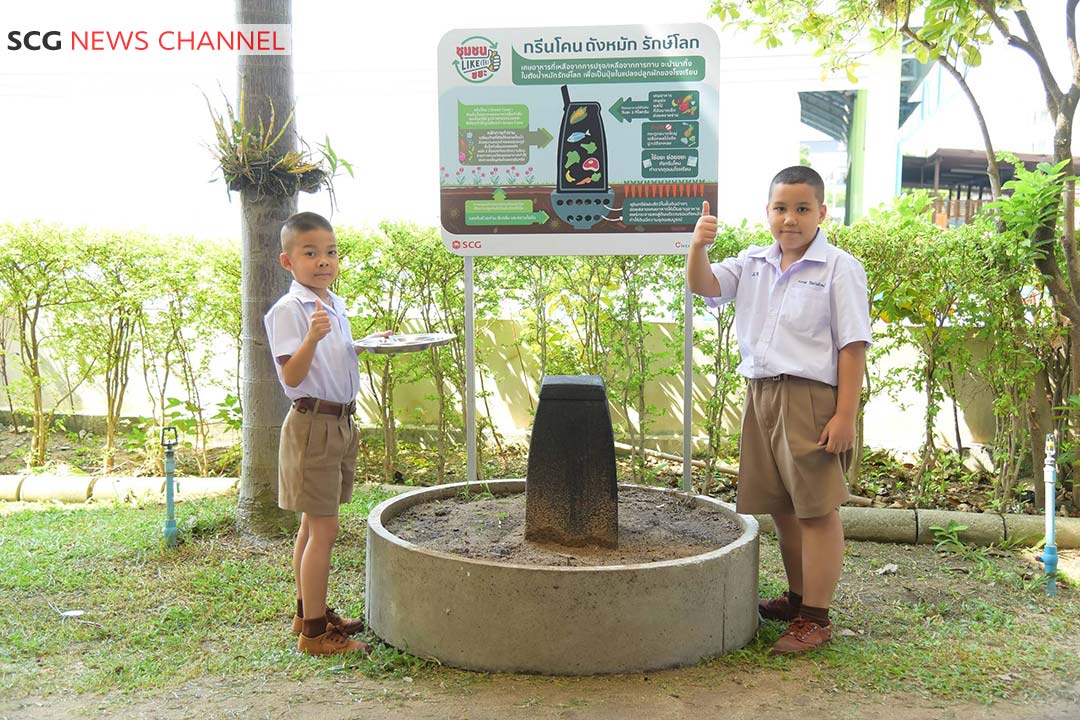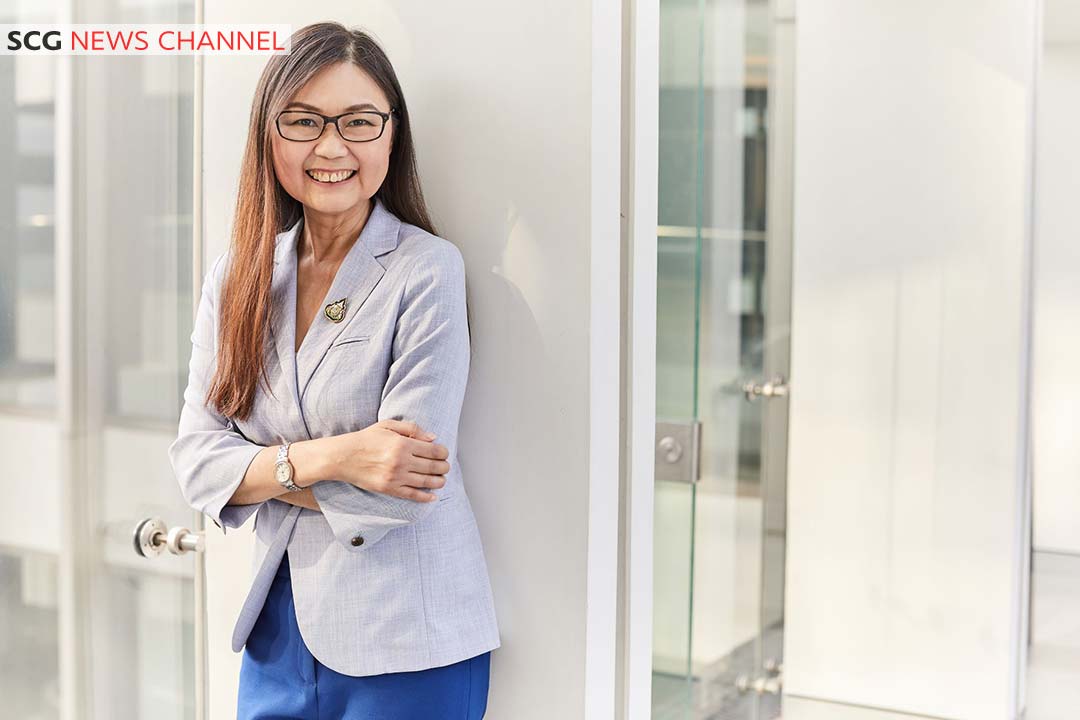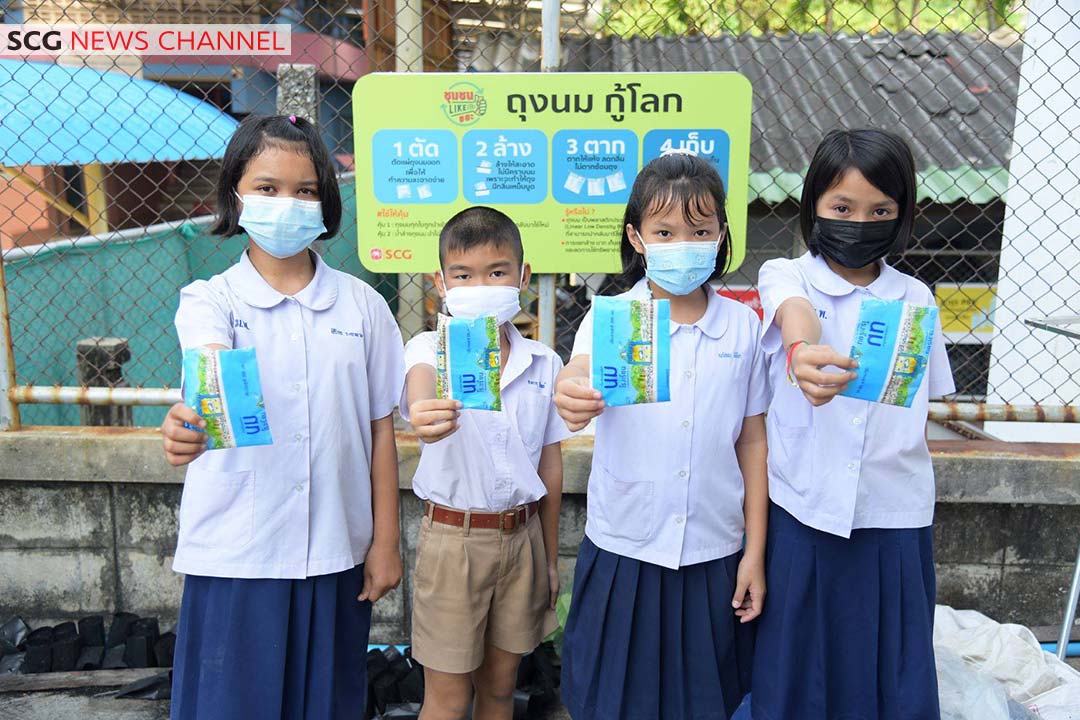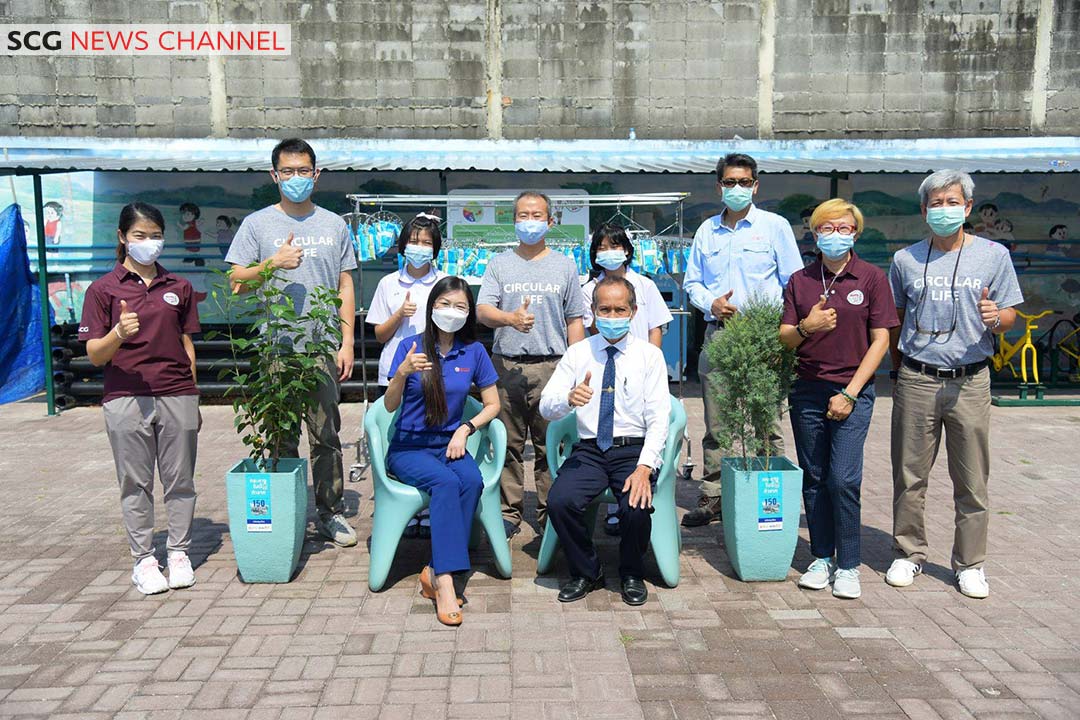“Waste is not wasted when proper management is applied.” This is not an overstatement as many used items can be upcycled to become valuable resources. Also, they can be a source of income or what may be called gaining from waste piles.
Let us dive into the authentic lessons beyond classrooms from an organization tangibly driven by the circular economy with SCG Chemicals, an expert in petrochemical products. SCG Chemicals initiated the “Waste-free Community” project with a community waste management model from homes to temples and schools. These units connect to the community’s “waste bank”, thus, giving total integration to the system. This pilot project began in early 2019 at Map Ta Phut, Rayong, Thailand.
Connecting the process via households – temples – schools – the waste bank is the core of instilling knowledge, understanding, and serves as a foundation for an integrated community waste management system. Also, this promotes the “maximizing resource, separating waste, and proper disposal” practice. This is especially true among “young generations” who are growing up as the main driving force of the future. Accordingly, SCG Chemicals joins with educational networks in creating learning programs about resource appreciation and school waste management. The program has undergone tests, experiments, revisions, and is on its journey to implementation in different schools.

Learning by doing via educational stations
Ms. Namthip Samphowprasert, Brand Management and CSR Director, SCG Chemicals mentions that “cultivating mindsets about proper resource usage and waste management for the young generations is providing a circular economy foundation for the community. We hope for them to practice maximizing resource, separating waste, and proper disposal. Then, transfer the knowledge from the schools to their families and communities. In the initial stages, SCG Chemicals partners with schools to assess the waste issue within the school. Then, instructional design is provided. Our main concern is the students and how to keep them interested and motivated. We settled on the solution to make waste management fun and knowledgeable where learners get first-hand experiences. Finally, we agreed on the waste management learning stations where children practice and learn different topics from authentic situations in their everyday life. Some examples are the upcycling milk pouches station and the green canteen station. This year, we plan to expand the school waste management program to over 10 schools along with handing over the learning stations to all 3 piloting schools, the Ban Map Ta Phut School, Wat Chak Lookya School, and Wat Map Chalut School. Moreover, following normal school openings, we will extend the initiative to other schools.”

Learning from problems and authentic lessons
Ms. Walailak Jinhirunkul, Assistant CSR Project Manager, SCG Chemicals, among the team behind the “Waste-free Community” talks about the school waste management program that “our team met with the teachers and students to share knowledge about the different types of materials. We showed the value of used items such as the school milk pouches, which can be recycled once they are properly managed. Once they realize the benefits and experience the examples first–hand, the students tend to create new mindsets that nothing is a waste. Moreover, we teamed with the school to assess the problem and studied school waste categories. Then, we contribute our expertise in material science and profound experience from operations with respected networks to finally reach a mutual solution. The objective is for all the waste to undergo efficient management coupled with a tracking system and follow-up developments, aiming for achievable and sustainable implementation.”
Examples of the school waste management learning station are the Upcycling Milk Pouches Station. This is where students learn to manage the overflowing milk pouches waste each day. Milk pouches are made from LLDPE plastic which is recyclable and can be made into school items such as chairs and planters. The children will take turns to cut open, wash, dry, and collect the pouches while the water used for washing is passed on to water the vegetable garden. The Green Canteen Station promotes food waste awareness where everyone is encouraged to finish their food and the remaining food waste becomes fertilizer at the Green Cone Station. The Bio–fermented Water Station turns fallen leaves into soil conditioner while the No–flipping Fertilizer Station handles the large number of leaves and twigs waste found in schools. They are turned into fertilizers that will then nourish the trees within the school and temples’ premises.

Aside from contributing to less resource consumption, the proper management of waste also foster a sense of contentment for the children. Also, the extra income from selling the waste turns into activities for the school.
“Prior to the project, the school discards all the milk pouches, with the municipality managing the waste. However, after learning about the circular economy from SCG Chemicals, they advised that most used plastics can be recycled or upcycled. For instance, the milk pouches can become plastic chairs or other useful items. Moreover, plastic bottles and cups can be sold to the community’s waste bank while organic waste such as leaves can become fertilizer. This taught us that waste doesn’t end with the disposal. Interestingly, when recycled plastic chairs from the milk pouches are used in the school, the children are excited. As the teacher informs them that their waste management contribution is tangible, it has become a chair. Also, plastic bottles and cups are collected for sales to create income for the class. In student events such as the New Year’s party, the children will notice that we use the money from the sales. They learn that something they once thought was valueless can now fund their activities wherein no donation money is needed from the parents” Mr. Sanong Petchagun, Director, Wat Chak Lookya School mentions.
Children passing on know-how into homes
Mr. Sanong Petchagun, Director, Wat Chak Lookya School explains that “SCG Chemicals’ waste management learning stations greatly helps instill the environment-friendly consciousness via the waste management activities. When the students carry on with their lives in the community, they possess these habits and communicate with their parents that wastes are valuable and are a source of income. This successful collaboration is the work of schools, the government, and the private sector. Additionally, this learning process greatly serves as a role model for other schools.
Out-of-classroom authentic lessons on waste management are on par with knowledge in the classes. It is learning by doing until real experiences are formed. Most importantly, this helps create awareness on how everyone is responsible for society and the environment. The “Waste-free Community” can be accomplished by beginning from small units such as the family and schools. Then, the effects will ripple to become great sustainable outcomes for the society and environment.

For more SCG updates can be found at https://www.scg.com/sustainability/circular-economy/ / https://scgnewschannel.com / Facebook: scgnewschannel / Twitter: @scgnewschannel or Line@: @scgnewschannel.